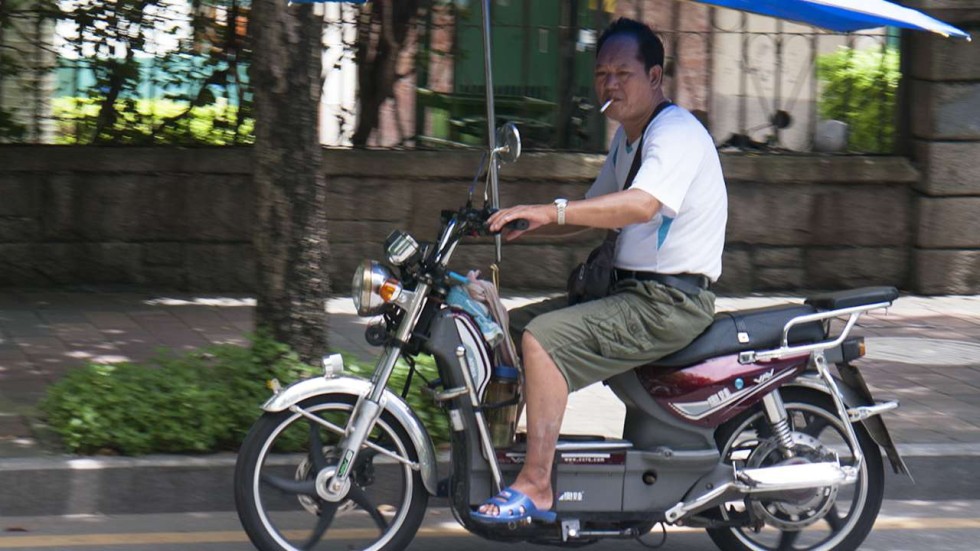steveintoronto
Superstar
Interesting pointt you make on Asia. When I was Googling for background for my last post, I tripped across this (with stifled glee): (Bear in mind the continuing ambiguity of the term "e-bike")The European pedelac is more of an pedal assist bike (what the City is expecting on the path). However, the Asian designed pedelac's go above this. You can select either assist or throttle mode. Throttle mode lets you sit back and go without any effort (a good quality one can travel 50 km is pedal assist and 30 km in throttle mode).
Reading the bylaws it appears as if they would only let you on the MGT if you are in pedal assist mode. I assume many people just add a bit more than pedal assist and that's why you see them not pedalling. As long as they aren't stupid about it and keep with the flow of traffic. But all it takes is a handful of idiots who use full throttle mode and go 50 km/hr weaving around bikes and walkers alike.
I'm probably going to hold off and suffer in the stinky TTC this summer. Let the bylaws and the tech mature for a year. I'd hate to buy one and then the city changes the bylaws. Next spring if its still OK i'm going to purchase a pedelac.
http://www.scmp.com/lifestyle/trave...cret-illegal-e-bikers-crying-out-power-peopleHong Kong’s secret, illegal e-bikers crying out for power to the people
E-bikes are cheap, quiet, environmentally friendly, take up much less space than cars and are used all over China – so why are they outlawed on Hong Kong roads?
PUBLISHED : Thursday, 28 July, 2016, 12:28pm
UPDATED : Thursday, 28 July, 2016, 6:22pm
Comments: 4
http://www.scmp.com/lifestyle/trave...cret-illegal-e-bikers-crying-out-power-people
Stuart Heaver
Rush hour in Fuzhou, capital of Fujian province and home to 6.6 million people, seems unusually quiet. It’s not the density of traffic on the roads that is remarkable, but the lack of noise.
It’s almost completely silent because most commuters in Fuzhou, like an estimated 200 million others across China, opt for electric bikes – and it’s easy to see why. These two-wheeled vehicles, which range from electrically assisted bicycles to what appear to be silent conventional motor scooters, seem to offer the perfect solution for urban transport. E-bikes are cheap, quiet, have zero emissions and take up much less space than cars. Batteries can be conveniently charged overnight at home and they have inspired a successful Chinese industry which supplies customers all over China and the rest of the world.
[...]
The law in Hong Kong has unique and exquisitely bureaucratic logic for excluding their citizens from the health and social benefits of e-bikes. Here, all e-bikes are classified as motorbikes (which they clearly are not) but because they do not precisely conform to the same exacting safety standards as petrol driven motorbikes, they are forbidden on Hong Kong roads.
Secretary for Transport and Housing Anthony Cheung Bing-leung last addressed the issue in the Legislative Council in 2013.
“Bicycles equipped with electric motors are not normally designed to the same safety and performance standards as conventional motorcycles. They are normally not considered roadworthy and would not be registered and licensed. Therefore, the Government currently has no plan to allow the use of electric bicycles on roads of Hong Kong,” he responded to a question about the perils of e-bikes. Nothing has changed since, much to the frustration of Hong Kong’s small community of secret e-bikers.
[...]
“There is a distinctive difference between the concept of an electrically assisted bike, and a electric bike,” says West and explains that the former type means that the rider must be at least attempting to pedal the bike in order to gain assistance from the electric motor. These are sometimes called “pedelecs”, which usually include additional safety features such as motor cut-out switches when the brakes are applied, and speed restrictions. These low power and speed-restricted pedelecs are the sort of e-bike permitted and encouraged in Europe, Singapore and elsewhere. It can be a healthy option too, because the more sophisticated models allow the rider to select the amount of electric assistance they require.
West also thinks that by avoiding the issue and not properly regulating and licensing e-bikes, the Transport Department is making matters worse by encouraging people to manufacture their own home-made contraptions with massive battery packs and unlicensed parts, capable of causing real injury.
“There are tricycles whizzing around with three or four 12-volt car batteries hidden under the seat to give the required power. The weight of that and a passenger on the trike with a rusty old single brake is a disaster waiting to happen,” says West.
[...]
Note the butt stuck in the 'cyclist's' face top pic. This isn't about being "Green"...







